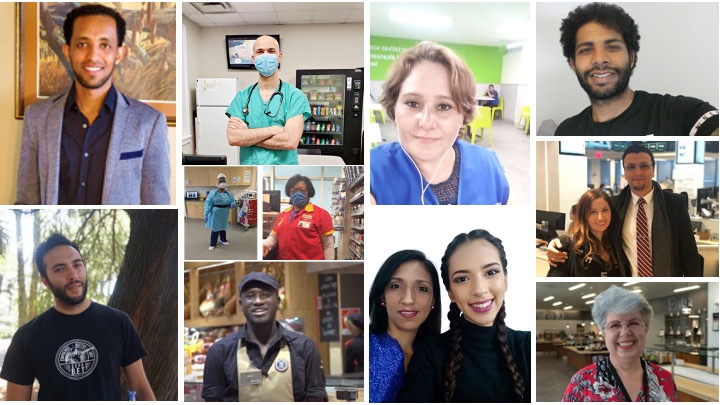
To mark World Refugee Week 2020, we'd like to celebrate the contributions that refugees around the world have made during the COVID-19 crisis.
From doctors and nurses on the front lines of the pandemic, to delivery drivers, food manufacturers, and retail professionals who are showing up day after day as essential workers - meet some of the refugees who are keeping our communities nourished, safe, and healthy during these challenging times.
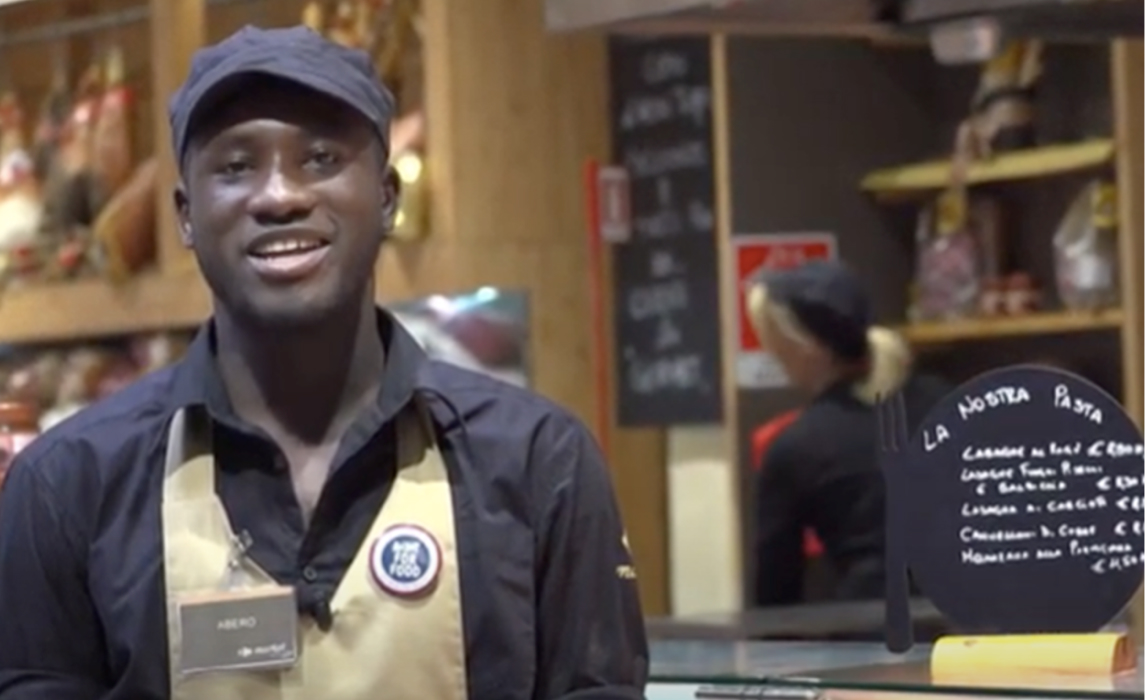
Abero has been living in Rome for the past several years. During this time, he has developed a classic Italian passion: food. Abero is a refugee from Côte d’Ivoire, and after arriving in Italy by boat, he participated in the Safe In program, sponsored by the Adecco Foundation and JP Morgan Foundation. Through Safe In, Abero joined a vocational training and professional gastronomy course run by Carrefour Gourmet, then landed an internship – and later a full-time job – with the grocery chain. He now plans to become the director of a gourmet food shop.
“[At Carrefour] I began to understand there is another way of cooking. I thought there was only what we usually eat in our country, in Côte d’Ivoire, but it wasn’t like that. I learned different things, and this gave me the key to my life,” said Abero.
As the novel coronavirus spread through Italy in early 2020, Abero has found a way to lend a helping hand to his new community through food: after work, he’s been delivering groceries to COVID-19 patients and the elderly.
“[My job has given me] a sense of humanity. My work involves relationships and I know very well the importance of that - to be connected, to be part of the same world,” he said.
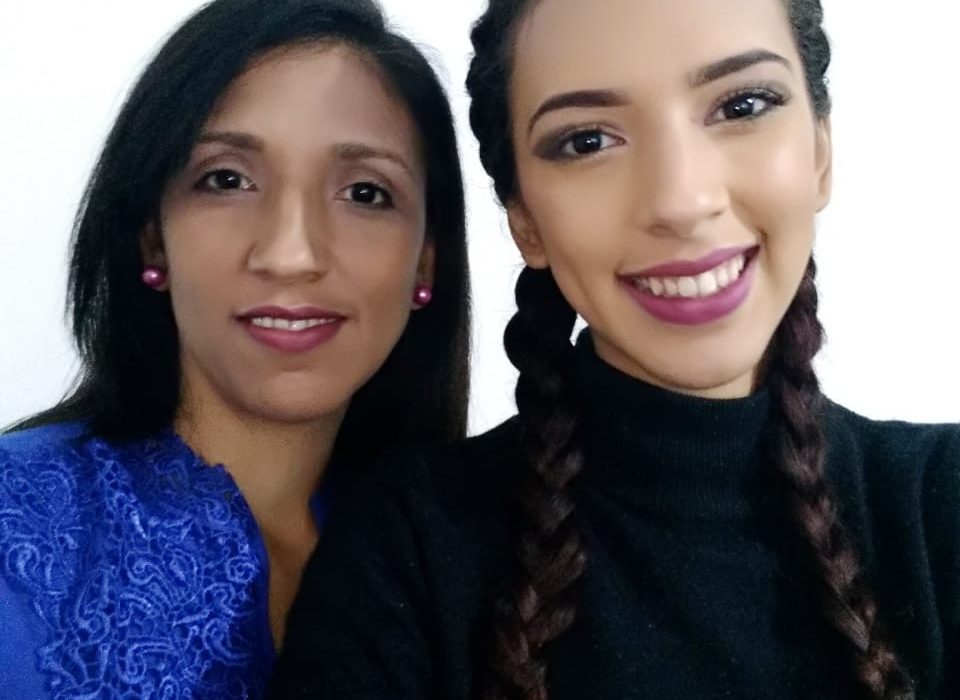
Aleska and Johneska, a mother-daughter duo from Venezuela, both work for Sodexo at hospitals in São Paulo, Brazil. They, like over five million other Venezuelans, left their home country to escape the ongoing socioeconomic and political crisis.
Since coming to São Paulo, Aleska, who was a doctor in Venezuela, is able to continue to work in hospitals as a food service worker, and said she is learning about the medical system in Brazil in the process. “Even if I do not work as a doctor right now, I have been given the opportunity to earn my livelihood. I can help my family economically now, and work towards my diploma to be able to work as a doctor,” she said.
Her daughter, Johneska, works at a neighboring hospital in São Paulo as a health worker assistant. There, she helps patients with their menus. Her experience in the hospital has given her a glimpse of what the future may hold. “This has given me hope for the future that I can become a psychologist... now I have more income and can have a normal life again,” she said.
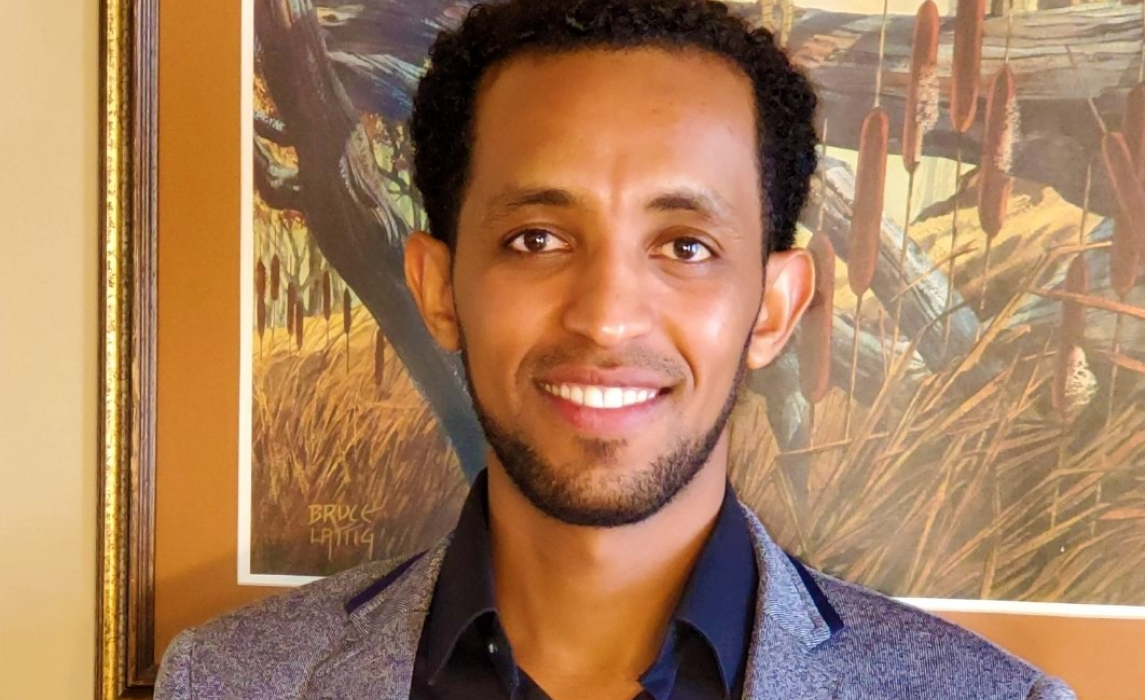
Eyasu’s workdays revolve around yogurt. A refugee from East Africa, Eyasu now works as a Production Supervisor at Chobani in Twin Falls, Idaho.
“I haven't seen my family for about twelve years. But to me, Chobani is my family right now. I don’t feel like a refugee anymore,” said Eyasu.
After feeling civil disruption in his home country, Eyasu moved to Egypt. There, he joined a refugee program that allowed him to move to the U.S and land a job with Chobani. During the pandemic, he’s proud to be able to make yogurt that helps feed families throughout the country.
“We are still making yogurt every day, and I feel a sense of purpose to know that I am helping people feed their families with healthy food. This time has taught me the importance of being healthy and eating healthy food - I am honored to know that I can help others to do the same,” he said.
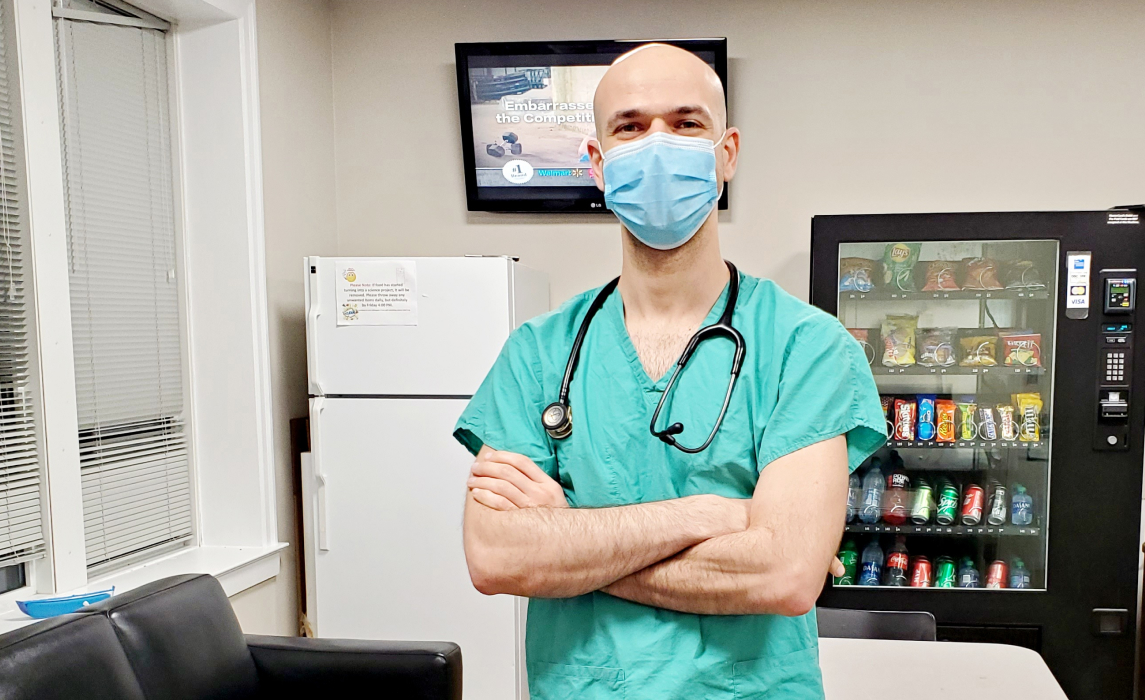
Ghaith is a physician from Iraq who now lives and works in Atlanta, GA. His path to becoming a doctor was fraught with challenges: his teenage years were set against the backdrop of the Second Gulf War. Even during his years in medical school, he was surrounded by ongoing violence.
With support from Upwardly Global, an NGO that supports refugee professionals rebuild their careers, Ghaith is navigating the process to re-license as a physician. Today, he is treating COVID-19 patients in Georgia – and recovering from the virus himself.
“[During the pandemic] with no family allowed and no visitors allowed, you really look to the people who are taking care of you to be there for you. That’s where I found my sense of purpose - to help them through this really challenging time. I really can't wait to feel better and get the virus out of my system and get back to work to help these patients,” he said.
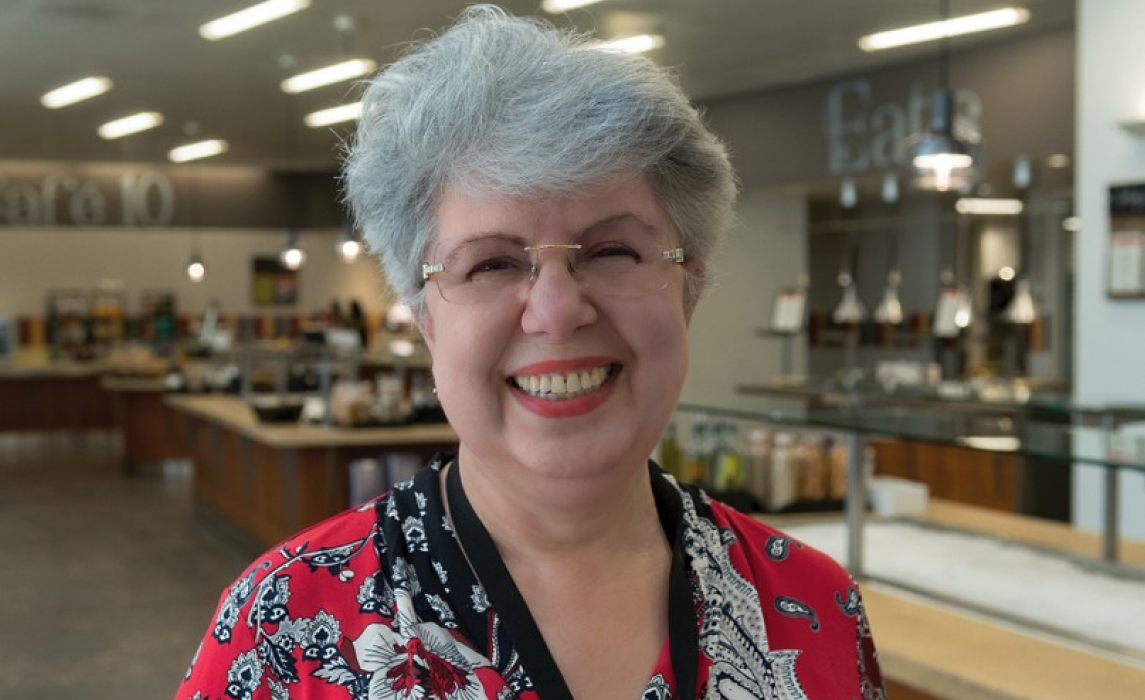
Katya is the General Manager of Sodexo’s cafe at Paypal’s offices in San José, California. For the past several years, she has been working her way up at Sodexo, having first started with the company as an hourly employee. It’s an impressive journey, but Katya’s had more than one of those: she’s originally from Ukraine, but was forced to flee the country with her family due to armed conflict and ethnic tension. Her family came to the United States as refugees in the 1990s.
“Being a refugee is special, you've been through a lot in your life… So, I think if there’s a strong core that a country can rely on its refugees,” she said.
Katya said her job at Sodexo has given her a sense of community. “I have a different kind of emotional attachment to my employees. I spend more time at work than I do at home, and I treat them as family. Some of them I’ve known 15 years… and I feel grateful because these are the people I rely on and that I’m taking care of as much as I can.”

Atlanta-based couple, Dr. Heval and Dr. Kazeen, have a lot in common: they’re both Kurdish refugees, as well as respected cardiologists. And now, they’re both determined to contribute to the novel coronavirus response in the U.S.
Heval, who is originally from Syria, was forced to flee home due to political oppression against the Kurds; and Kazeen, who is originally from Iraq, left home as a result of the ongoing unrest while the country was under the reign of Saddam Hussein. Now, they’re leveraging their medical skills and the experience they gained living through conflict in their home countries to fight COVID-19 in their community.
“Our experience as refugees gave us resilience… I came [to this country] after 9/11 and [my wife] came at a time where a lot of people didn’t even know who refugees were, so there were biases towards refugees. But we had Americans who welcomed us and gave us hope to be in this country, and now is our time to give back to them. So it’s kind of like turning the circle - they welcomed us, and now we as physicians are there for them,” said Heval.
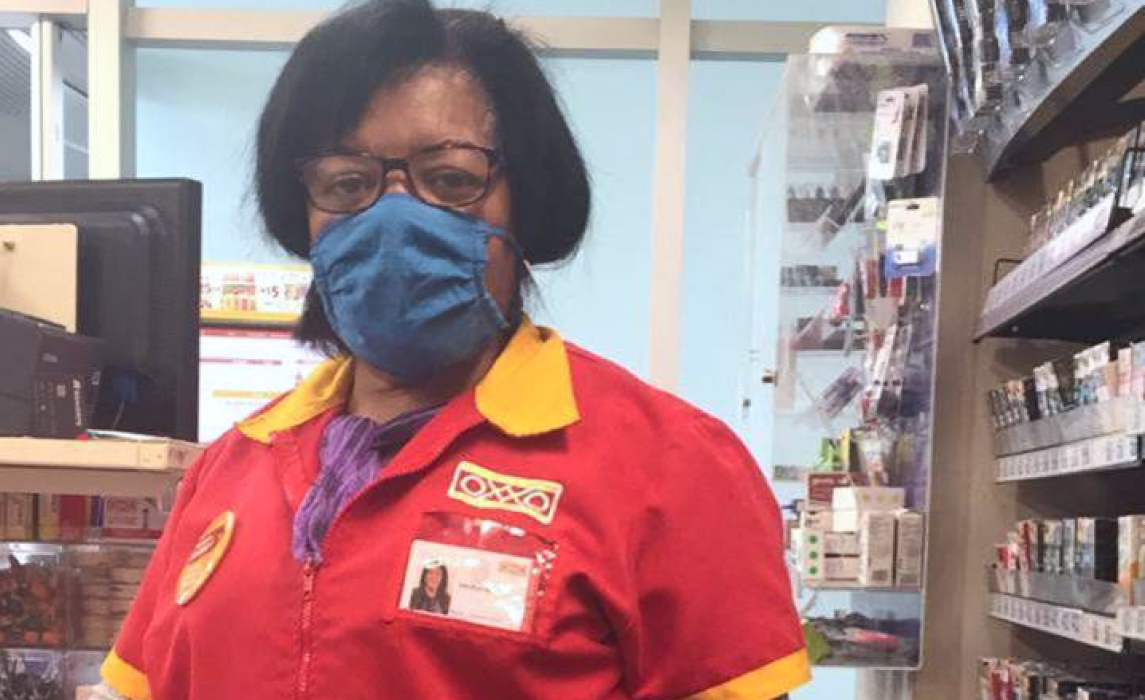
Formerly a judge in Cuba, Mari now lives in Mexico and works for the convenience store chain OXXO, where her many responsibilities include customer service, cleaning, and merchandise assortment.
Due to rising tensions as a result of her job, Mari and her family decided to flee the country. They arrived in Mexico through Tapachula, where UNHCR supported them to move to the north of the country. Now, at OXXO, Mari said she’s learning something new every day.
“I really like the work environment of this store and I would like to grow – I would like to see myself as a leader,” she said. At OXXO, they are taking extra precautions to ensure that colleagues and customers at their essential business are safe, taking temperatures before entering the store and maintaining a safe distance.
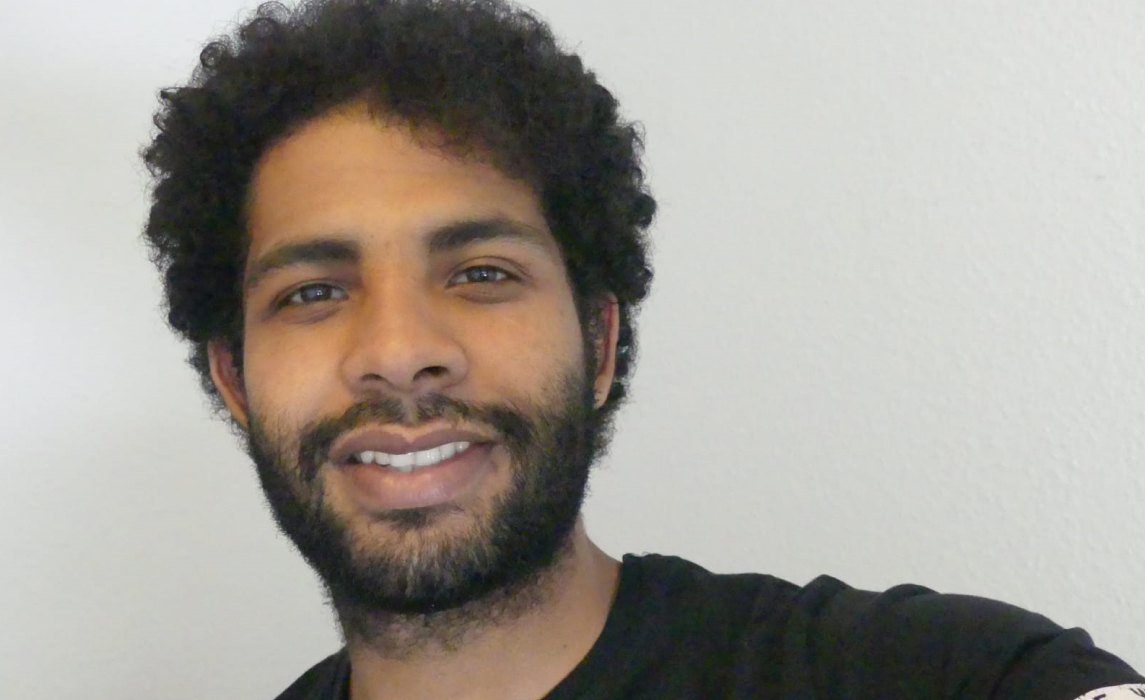
After fleeing the conflict in Syria with his family, Nour was able to make a new start in Celle, Germany. A leader in refugee integration, Germany has welcomed more than 1 million refugees since 2014 - more than half of whom are Syrian refugees.
In Germany, Nour works as a machine operator at the production facilities for WASA, the world’s largest manufacturer of crispbread and a subsidiary of Barilla. Nour is responsible for packaging and packing breads, and conducting quality checks to ensure the breads are ready to hit supermarket shelves.
As COVID-19 spread across Europe, Nour continued to report to work day after day, adhering to the enhanced safety procedures put in place to protect himself and his colleagues. While wearing masks, carrying out temperature checks, and social distancing have rendered his work e more complicated, Nour is still very grateful for the opportunity to work for Barilla.
“I have landed in Northern Germany and I was lucky getting a job opportunity at WASA. It has helped me a lot to work at WASA/Barilla,” Nour said. Nour hopes to progress in his career at Barilla, and wants to get experience in more areas of the business. He hopes to buy a house and reunite with more of his family members soon.
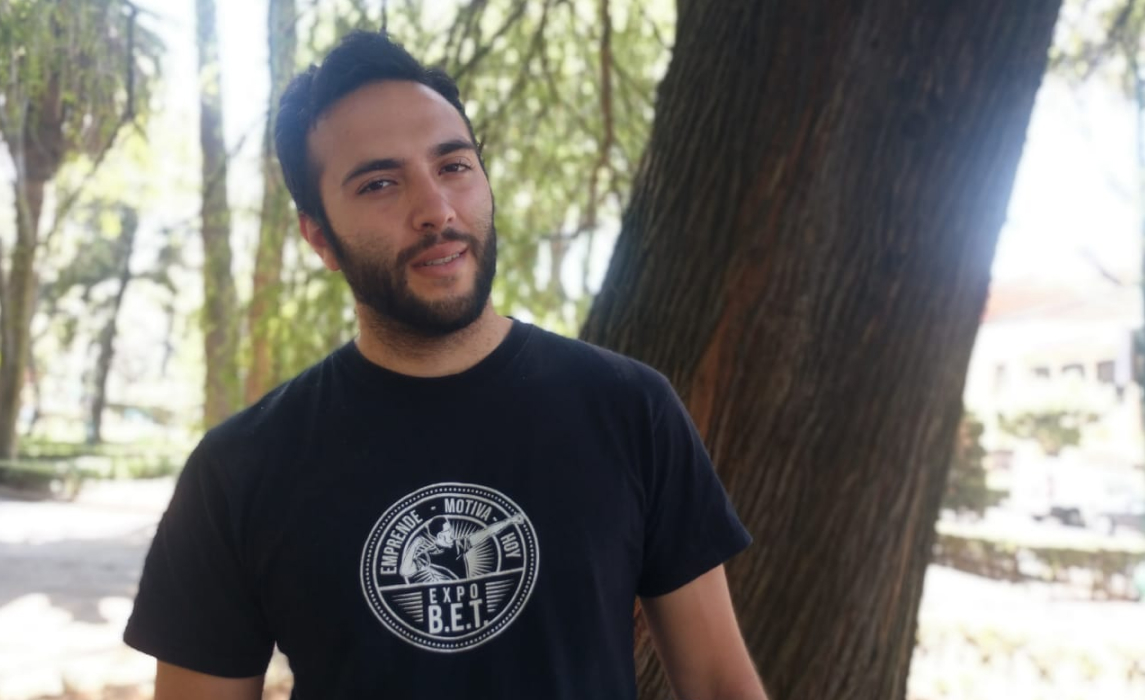
As a delivery partner of Uber Eats, Ricardo has spent the past few months delivering meals to families throughout Mexico City, as COVID-19 spread through the country. Ricardo is originally from Venezuela – he grew up in San Antonio de los Altos, 30 minutes from the capital city, Caracas. Fleeing the socioeconomic and political crisis in Venezuela, he gathered six years’ worth of savings before he was able to move to Mexico.
“It is very rewarding to know you are helping others, to see how people are smiling when they receive the ready-to-eat and warm food – and when they thank you with a big smile on their faces… It makes me feel I am doing honorable work, where I can also bring a bit of happiness to others, and this makes me feel a better person,” he said.
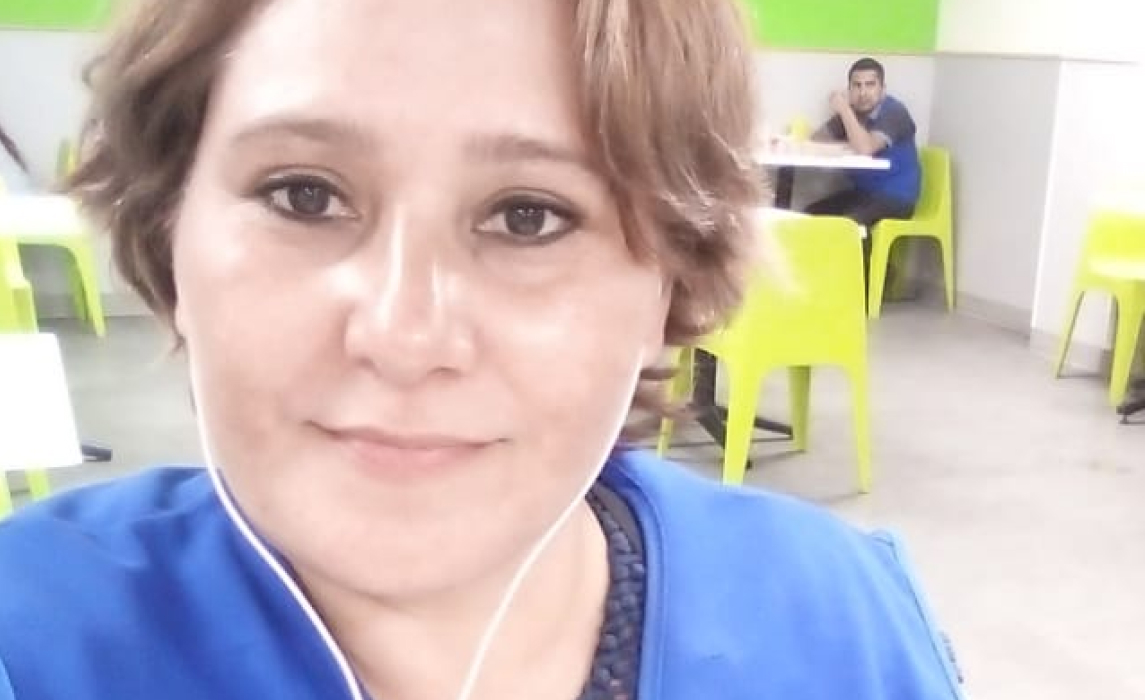
Sara spends her days working in the bakery of a local Walmart in Mexico City. She’s originally from Honduras, but gang violence forced her to flee home with her son and relocate to Mexico.
“It’s important to spread the message that we were forced to escape our country – we are not coming here to do anything bad, we did not have another choice,” said Sara. “I work in customer service; I prepare the bread and put it on the shelves. I am happy for this opportunity, and I feel very thankful.”
Before moving to Honduras, Sara was an entrepreneur; she owned a gym, a beauty clinic, and a barbershop. She hopes that her job at Walmart will be a stepping stone to establishing herself once again as an entrepreneur in her new home.
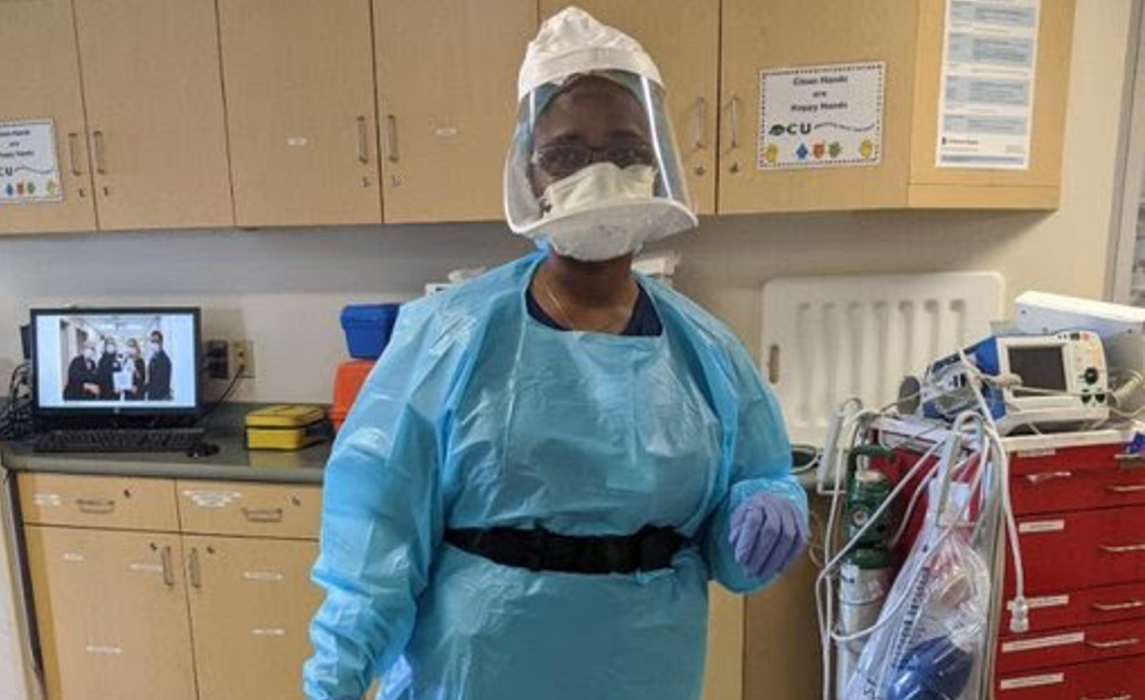
The novel coronavirus has changed daily life for everyone, but in Nurse Saymu’s case, the change is especially acute. That’s because Saymu is an intensive care nurse at a hospital in Langhorne, Pennsylvania, where she has been caring for COVID-19 patients, day in and day out.
The pandemic is an enormous challenge for medical professionals everywhere, but overcoming challenges is nothing new to Saymu. She was forced to flee her home country, Liberia, during the First Liberian Civil War. After living temporarily in Guinea, she eventually resettled in the U.S. in 1993.
"This is my way of giving back to the community that welcomed me as a refugee," she said. “With COVID-19... families cannot be with their loved ones in the hospital while they are so sick... so I try to be there for them… As a refugee I never thought I would be here, on the frontlines of the coronavirus crisis. As an American, I am very proud… to be able to help. I want to let every American know that we are all in this together,” Saymu said.
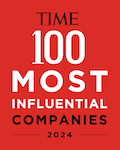 Tent Named to TIME100 Most Influential Companies List
Tent Named to TIME100 Most Influential Companies List